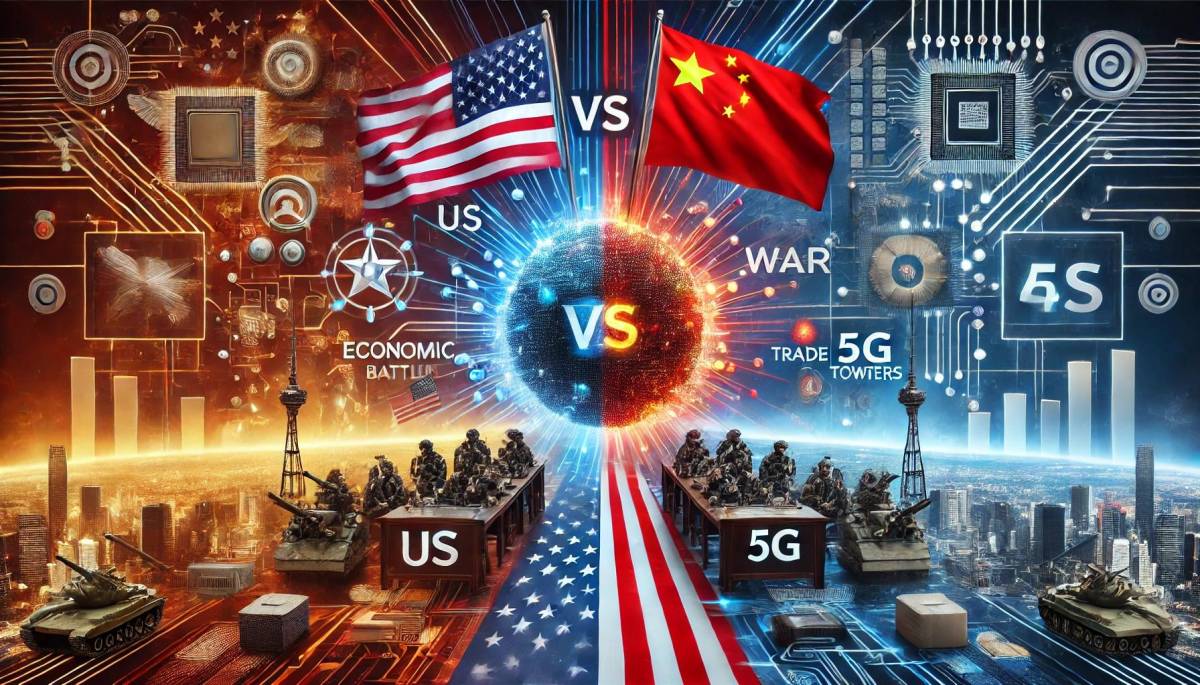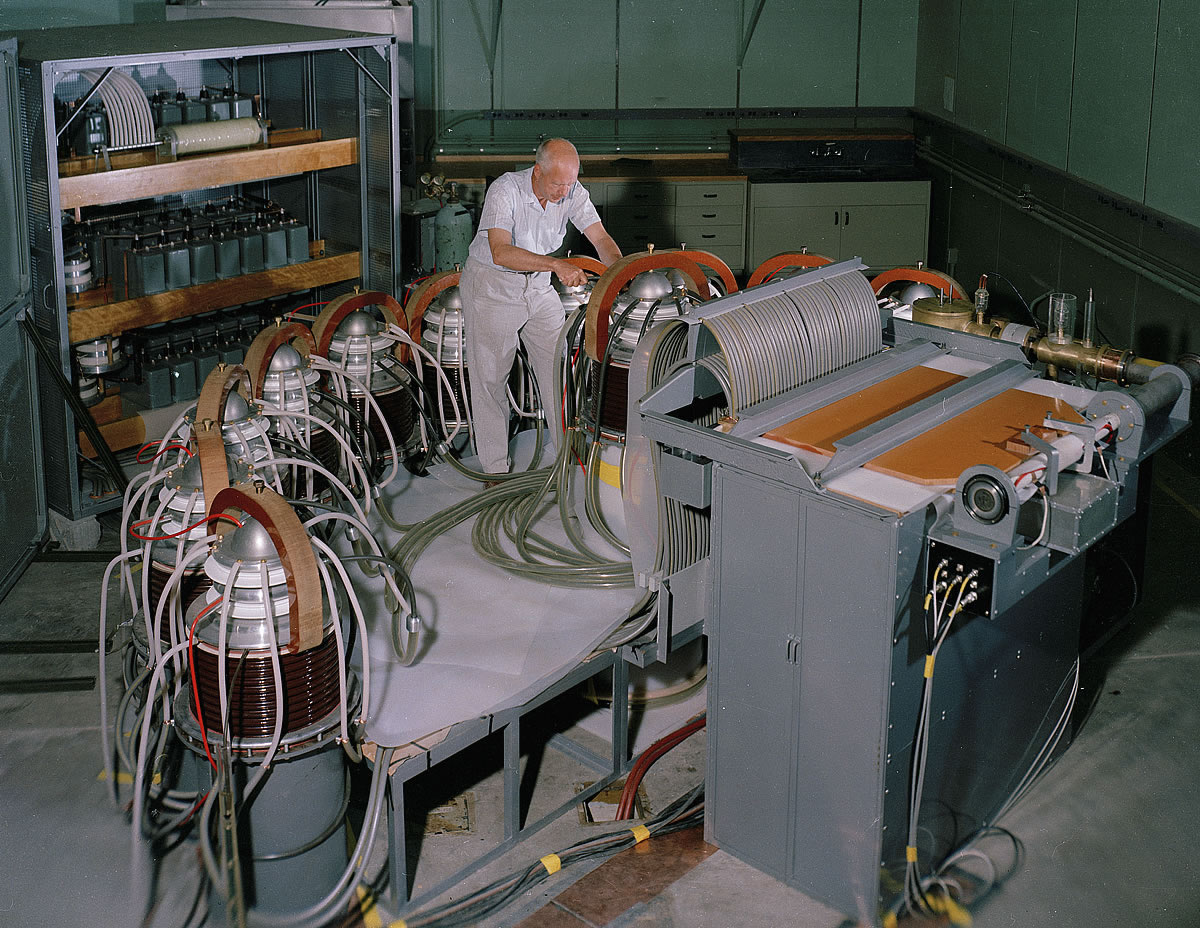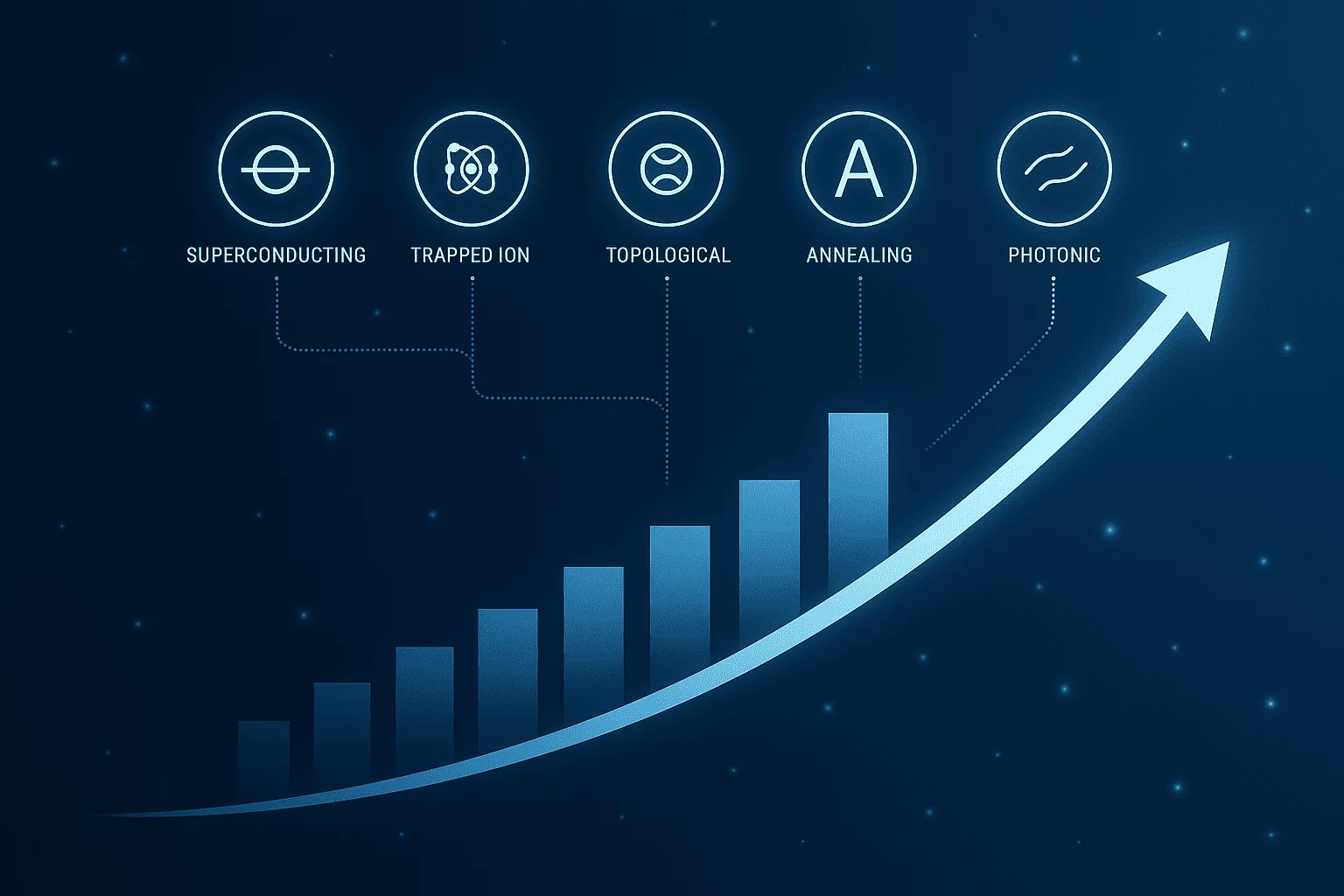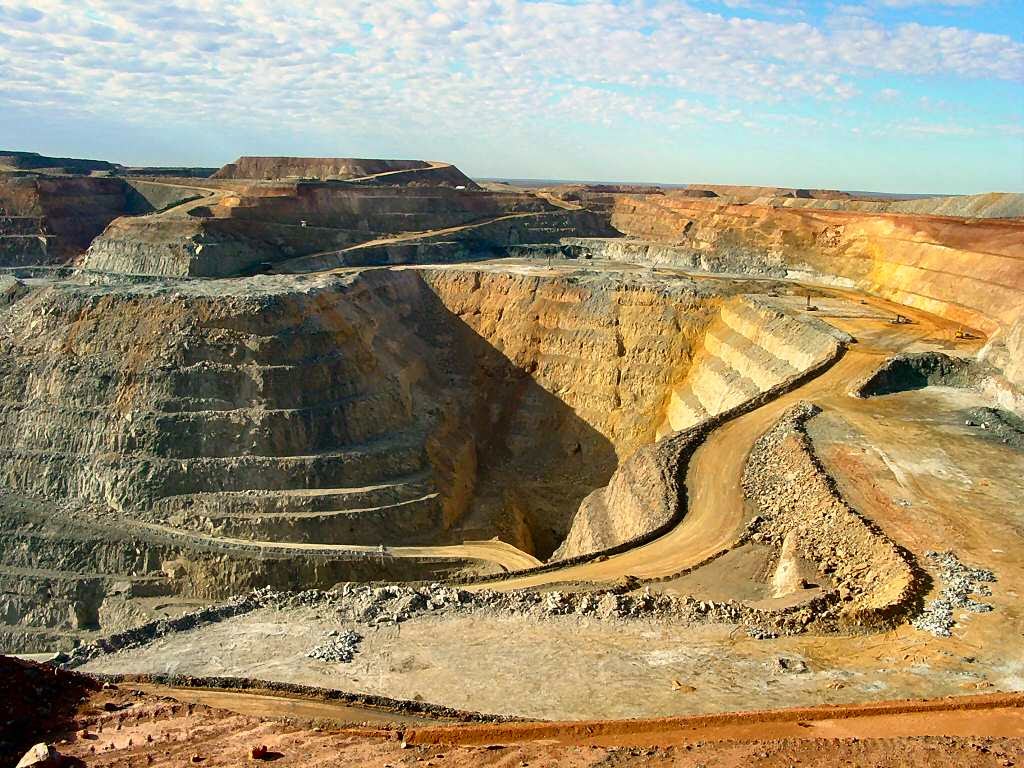The world is entering a new Cold War—one not waged with missiles or tanks, but with algorithms, qubits, and rare earth elements. As quantum computing promises to crack encryption, optimize logistics, and revolutionize warfare, the global superpowers of the 21st century are drawing new battle lines. Quantum computing is rewriting the global balance of power, and rare earth elements (REEs) are at the heart of it. This blog investigates the geopolitical race toward quantum supremacy, the strategic role of REEs, and what it means for military, intelligence, and economic power. Is the world ready for this invisible arms race?
At the center of this technological showdown lie rare earth elements (REEs), the minerals essential for building quantum chips, superconductors, and cooling systems. The two main actors in this high-stakes contest—the United States and China—are pouring billions into quantum research and scrambling to secure REE supply chains.
The REEs Quantum Stakes: Why Supercomputing Matters
Quantum computing goes beyond faster processors. These machines promise to:
- Break conventional encryption algorithms (e.g., RSA, ECC).
- Solve complex logistics problems in seconds.
- Simulate chemical reactions for drug and energy development.
- Operate artificial intelligence systems on an entirely new level.
In 2023, Google and IBM announced significant breakthroughs with 100+ qubit systems, while China’s Jiuzhang 2 photonic computer demonstrated processing speeds trillions of times faster than classical supercomputers for specific tasks.
| Key Quantum Computing Milestones | Achievement | Country |
|---|---|---|
| Google Sycamore | 200 sec task vs 10,000 yrs classical | USA |
| Jiuzhang 2 | 1 million-fold performance boost | China |
| IBM Eagle 127 Qubits | Commercial-ready modular quantum chip | USA |
By 2025, global quantum investments surpassed $65 billion, with military and intelligence agencies quietly leading many initiatives.
Rare Earth Elements (REEs): The Raw Material of Superpower
Quantum technology requires ultra-sensitive materials that operate at near-zero temperatures. Superconductors and quantum dots depend on:
- Yttrium and niobium for superconducting circuits.
- Neodymium and dysprosium for magnets in control hardware.
- Gadolinium for cryogenic cooling systems.
China dominates REE mining and processing, a strategic edge few countries can challenge.
| Top REE-Producing Countries (2024) | Share of Global REE Output |
|---|---|
| China | 60% |
| USA | 15% |
| Australia | 7% |
| Myanmar | 5% |
More critically, China processes over 85% of the world’s REEs, giving it near-monopoly status in the supply chain for advanced tech.
In response, the U.S. passed the REE Strategy Act in 2024, investing $2.4 billion into domestic mining, while the EU launched the Raw Materials Act to diversify sources across Africa and South America.
Quantum Defense: Encryption, Espionage, and Cyber Warfare
One of the gravest national security concerns is quantum decryption. Quantum computers could crack today’s best encryption in minutes, exposing:
- Government and military communications
- Financial systems
- Health data
- Strategic infrastructure
This threat has led to an arms race in post-quantum cryptography (PQC). The U.S. National Institute of Standards and Technology (NIST) has been working since 2017 to standardize PQC algorithms.
Meanwhile, intelligence agencies are pursuing “harvest now, decrypt later” strategies—capturing encrypted data today for decryption once quantum capability matures.
Both China and the U.S. are investing in quantum key distribution (QKD) systems, which use entangled photons to transmit information securely. In 2020, China launched Micius, the first quantum satellite, enabling QKD between Beijing and Vienna.
| Quantum Military Applications | Country Advancements |
|---|---|
| Quantum Key Distribution (QKD) | China (Micius Satellite) |
| Quantum Radar | USA (DARPA, Lockheed trials) |
| Quantum Sensors for Submarines | China (deep-sea sensor tests) |
| Quantum-Resistant Encryption | USA (NIST, NSA initiatives) |
Economic Supercomputing: Trade, Finance, and Forecasting

Quantum computing isn’t just about warfare—it can rewrite global economic competition. With quantum modeling, governments can:
- Optimize trade routes
- Forecast market behavior
- Simulate macroeconomic policies in real time
Financial institutions like JPMorgan Chase and Goldman Sachs are already testing quantum algorithms to price derivatives and assess risk.
In China, the central bank has launched its own quantum research unit to explore monetary strategy simulations and blockchain auditing using quantum nodes.
The race is not just who controls the technology—but who integrates it first across sectors.
The Secrecy Factor: Shadow Research and National Pride
Unlike the Space Race of the 1960s, the Quantum Cold War is happening largely behind closed doors. Most major breakthroughs are either classified or disclosed long after their operational deployment.
In 2024, a U.S. Defense Intelligence memo (later leaked) revealed fears of “quantum gaps” between allied nations and adversaries. Likewise, China has restricted all academic collaborations in quantum research with Western institutions since 2022.
This veil of secrecy fuels mistrust—and creates the risk of miscalculation. With no international treaties on quantum weaponization, there is no red line.
What Can Be Done? Proactive Measures and Ethical Foresight
To manage the escalating tension, the global community must act:
- Create a Global Quantum Accord: A Geneva Convention for quantum technology that limits its militarization and sets verification standards.
- Establish REE Transparency Protocols: Require disclosure of sourcing and processing for all tech-grade REEs to prevent exploitation.
- Boost Post-Quantum Encryption Readiness: Mandate PQC adoption by all critical infrastructure providers.
- Promote Open Science Where Safe: Encourage multilateral collaboration on non-defense quantum use cases (health, environment, education).
Without these steps, the risks of escalation and accidental destabilization grow.
Conclusion:
Swedish futurist Mattias Knutsson sees quantum computing not just as a technological shift, but as a moral inflection point. In a recent keynote at the Nordic Tech Ethics Forum, he warned:
“We are not racing to build faster machines. We are racing to define what kind of future we deserve.”
To Knutsson, the real danger isn’t quantum supremacy—it’s quantum isolation: a world where nations operate in secrecy, and technology outpaces wisdom.
He advocates for what he calls “shared sovereignty over knowledge”—a doctrine where breakthroughs in quantum and AI are shared with checks, balances, and inclusive global frameworks.
“In this new Cold War, victory isn’t control—it’s cooperation. The moment we forget that, the machines will not save us.”
Knutsson’s perspective is a needed compass in this quantum storm. The time to rethink power, security, and technology isn’t tomorrow—it’s now.
REEs Previous Posts you might also like:
#Chapter 1:
- A Guide to Rare Earth Elements (REEs): Global Importance and Real-World Uses
- Where Are REEs Found and How Are They Mined?
- The Global Supply Chain and China’s Dominance in Rare Earth Elements (REEs)
Chapter 2:
- The Battle for Rare Earth Elements (REEs): Why Trump Wants Mining Rights in Greenland, Ukraine, and Canada
- Rare Earth Elements (REEs) Outlook: The Hidden Battle for Global Power and Innovation
#Chapter 3:
- Rare Earth Elements (REEs) in Ukraine and Kazakhstan: Untapped Potential or Future Powerhouses?
- The Global Quest for Rare Earth Elements (REEs) Deposits: Unexplored Frontiers and Emerging Hotspots
Chapter 4:
- Rare Earth Recycling: The Key to a Sustainable REEs Supply?
- Rare Earth Elements (REEs) and Global Supply Chain Challenges
- The Role of Rare Earth Elements (REEs) in Modern Technology
Chapter 5:
- The Critical Role of Rare Earth Elements in Quantum Technology
- AI Meets Quantum: How Rare Earths Power the Next Computing Revolution
- Superconductors and Rare Earths (REEs): The Key to Next-Gen AI and Quantum Computing
- Rare Earths (REEs) in Quantum Cryptography: The Future of Unbreakable Encryption
- Rare Earths (REEs) and Quantum Sensors: Redefining Precision Technology
#Chapter 6:
- Quantum Teleportation and the New Arms Race: Are We Ready for the Implications?
- Ethics vs. Innovation: Should We Pursue AI Self-Awareness and Teleportation While the World Burns?





